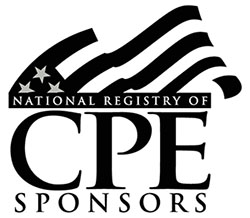
Understanding gas & electric utility rates and their relationship to utility profits doesn't have to be confusing.
Master the fundamentals of energy rate-making and learn the financial and accounting differences between regulated and unregulated businesses with this comprehensive course. This is a "must" seminar for anyone who is new to the utility industry or who is impacted by the utility rate-making process.
Day One (Morning - 4 hours):
Day One (Afternoon - 4 hours):
Day Two ( 4 hours):
This two-day seminar will be held at the hotels listed below or can be conducted on-site at your facilities. The seminar will start promptly at 8:00 AM and will finish at 4:30 PM on the first day. On the second day, the seminar will resume at 8:00 AM and will finish at 12:00 PM. The program includes continental breakfast, lunch, and coffee breaks on the first day. On the second day a continental breakfast, and coffee breaks are included. Attendees also receive a professionally produced seminar manual that can serve as a valuable office reference. Dress is businesscasual for all seminars.
This live group seminar is eligible for 11.0 CPE credits. Be aware that state boards of accountancy have final authority on the acceptance of individual courses for CPE credit. As of January 1, 2002, sponsored learning activities are measured by program length, with one 50-minute period equal to one CPE credit. One-half CPE credit increments (equal to 25 minutes) are permitted after the first credit has been earned in a given learning activity. You may want to verify that the state board from which your participants will be receiving credit accept one-half credits.


Utility analysts, utility employees involved in legal, accounting, regulatory, engineering, operations, customer service, sales, or marketing, Utility commission employees, industrial customers, commercial customers, Energy producers, utilities, electric generators, and marketers; energy and electric power executives; traders; marketing, sales, purchasing & risk management personnel; accountants; trading support staff; auditors; attorneys; government regulators; plant operators; engineers and corporate planners.
This fundamental level group live seminar has no prerequisites. No advance preparation is required before the seminar.
PGS seminars are known for their clear explanations and in-depth content. Register for a PGS class today, and join the over 10,000 energy professionals who have already attended one of PGS's proven programs.